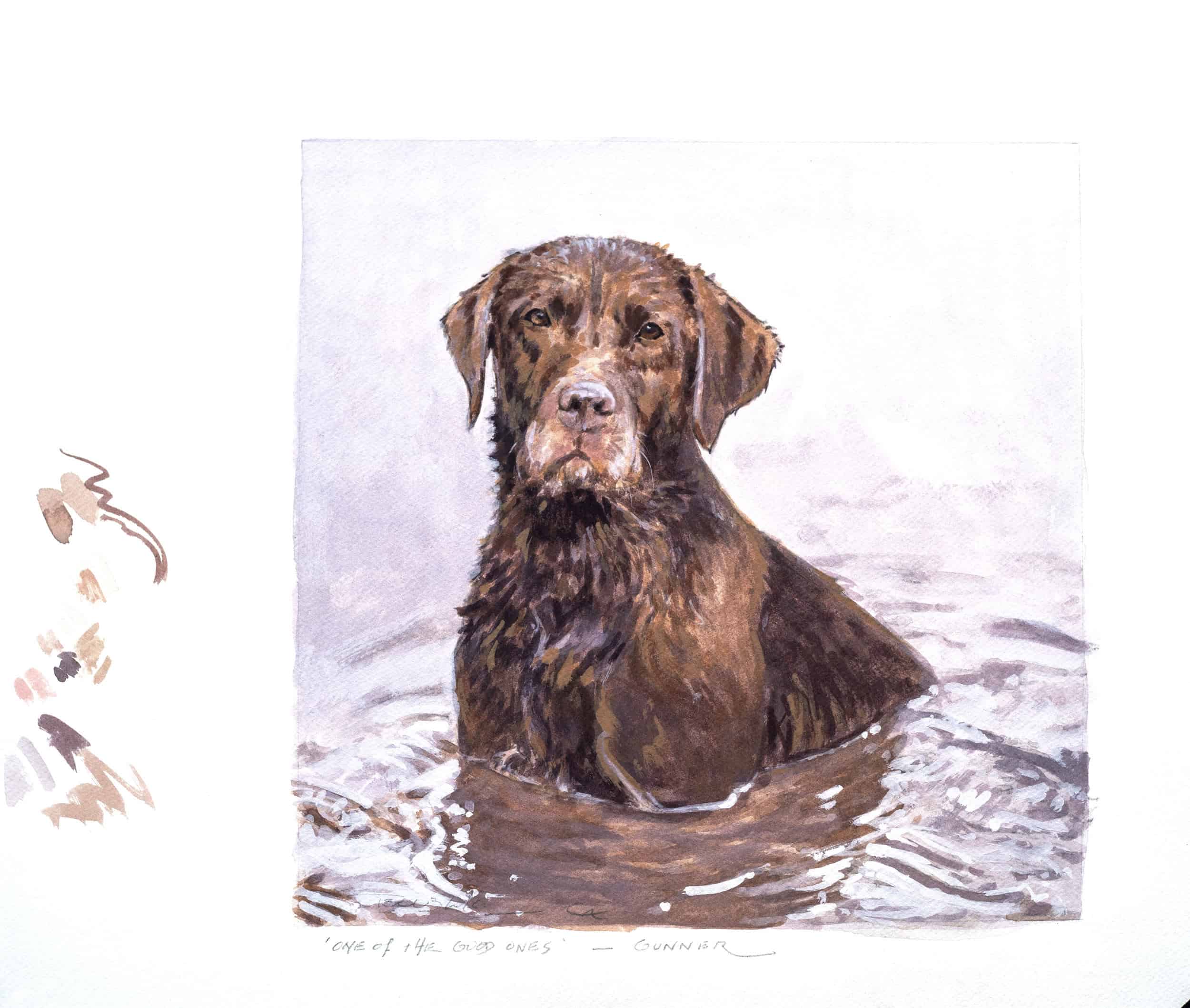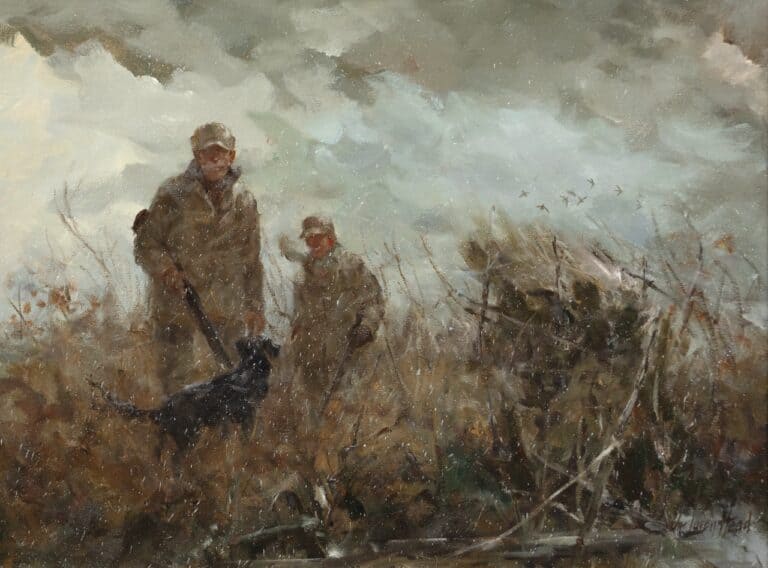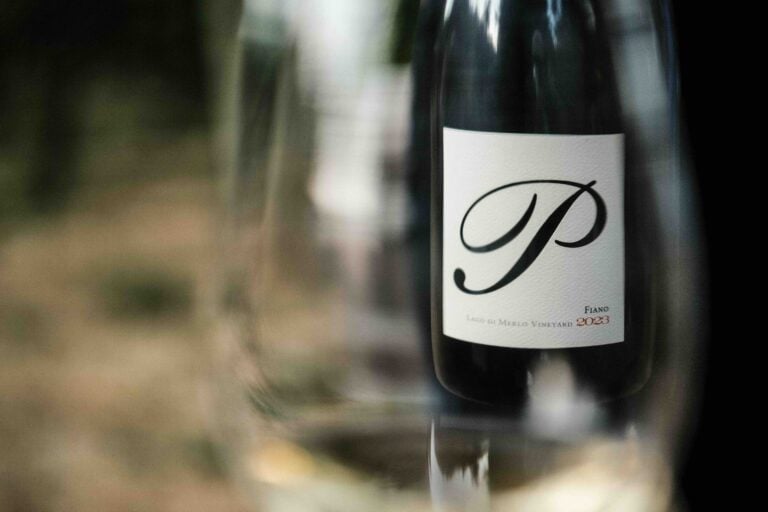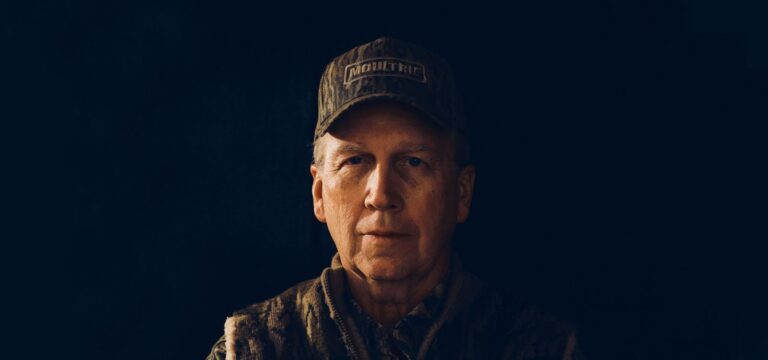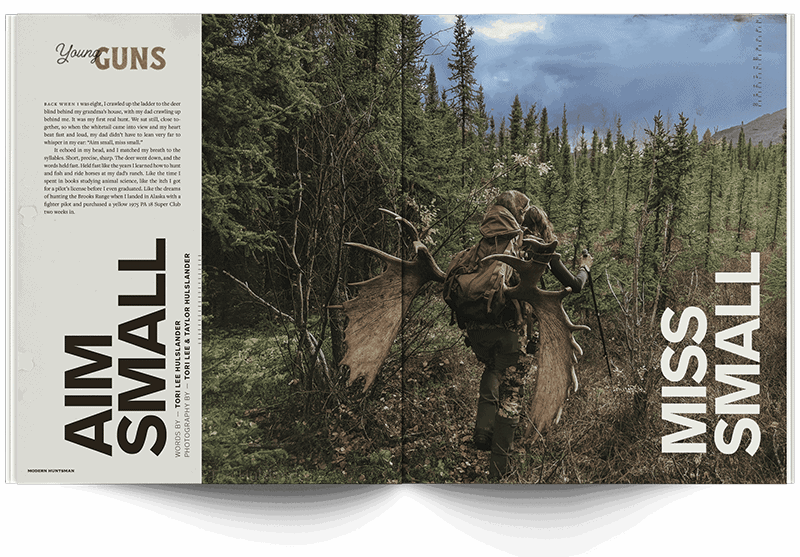It was like something out of a Robert Earl Keen song: Addison Edmonds and his college roommates sitting around the living room of their single-floor rental in Oxford, Mississippi one listless Saturday morning, watching B-grade hunting shows and pining for a sleety morning in their fathers’ duck blinds, until someone picked up a mostly empty beer can from the coffee table littered with last night’s dead soldiers, shook it, swigged the remnants, and said: “One of us better get a bird dog.”
I’ll do it,” said one roomie. Another claimed he had a lead on a litter from a reputable breeder. But talk is cheap, testosterone even cheaper. Of the big-talking boys, only one kept quiet: Addison. He peered out the window, focused on something in his mind’s eye: a breaking day in the not-so-distant future with a neoprene-vested Labrador at his side, a small spread of decoys set in the steaming slough. He imagined watching the dog’s horizon-fixed eyes until it discerned the first bird with cupped wings against the lightening sky, at which both began to jointly shake.
Three months later, in December on a Friday afternoon, Addison picked up a seven-week-old chocolate Lab from Dixie Brit Labs in Hartselle, Alabama. The next day, Gunner was retrieving a dove Addison had shot — the dog bringing the bird to hand before it had even learned how to sit.
You’ll never have a better bird dog, the saying goes, than your first bird dog. This has nothing to do with pedigree or litter-pick, but with the attention you give your initial four-legged field partner, the obsessiveness with which you train them — you watch Wolters’ Duck Dog and Water Dog videos so often your girlfriend buys her own television —and the faith you have in their genetically stored genius. You even work them on your lunch break, the hour that the advertising company that you own, at Sardis Lake in Oxford.
“I would train Gunner in five-minute sessions, ten to fifteen times a day,” Addison says from his office at GUNNER Kennels, the premier crash-safe dog crate company in the world, a company he founded and runs in Gunner’s honor out of Nashville, Tennessee. “Probably a little bit too much. But he was so quick. I would have to trick him. I would throw the dummy out and instead of saying ‘Go get it’ (the command), I would say ‘Go flip it,’ and he would not even break. It was early on I realized, wow, this dog was really smart. Any of his faults were a result of my poor training.”
From the jump, Addison and Gunner were inseparable companions — “We just knew each other” — but they rarely hunted alone. Those roommates and pals from the fateful Saturday morning were soon calling several times a week with good grounds procured and hunts lined up, knowing that any bird they managed to drop would end up in Gunner’s mouth, and retrieved to hand faster than they could reload. In fact, the hard-driving and insatiable Gunner became a bit of a cult hero in Oxford, the “go-to call” for young bird hunters at Ole Miss.
Dove, waterfowl, upland, you name it. Over the next several years, Gunner would retrieve thousands, perhaps tens of thousands, of birds, and dozens of species. He was light on his feet but drove like a barrel through the cattails and brush. If there was ice on the slough, he would plow through it like the prow of a ship, without fatigue. Once, Addison and the boys shot an eight-hunter limit in 45 minutes; Gunner brought every bird back to the blind. A force of nature.
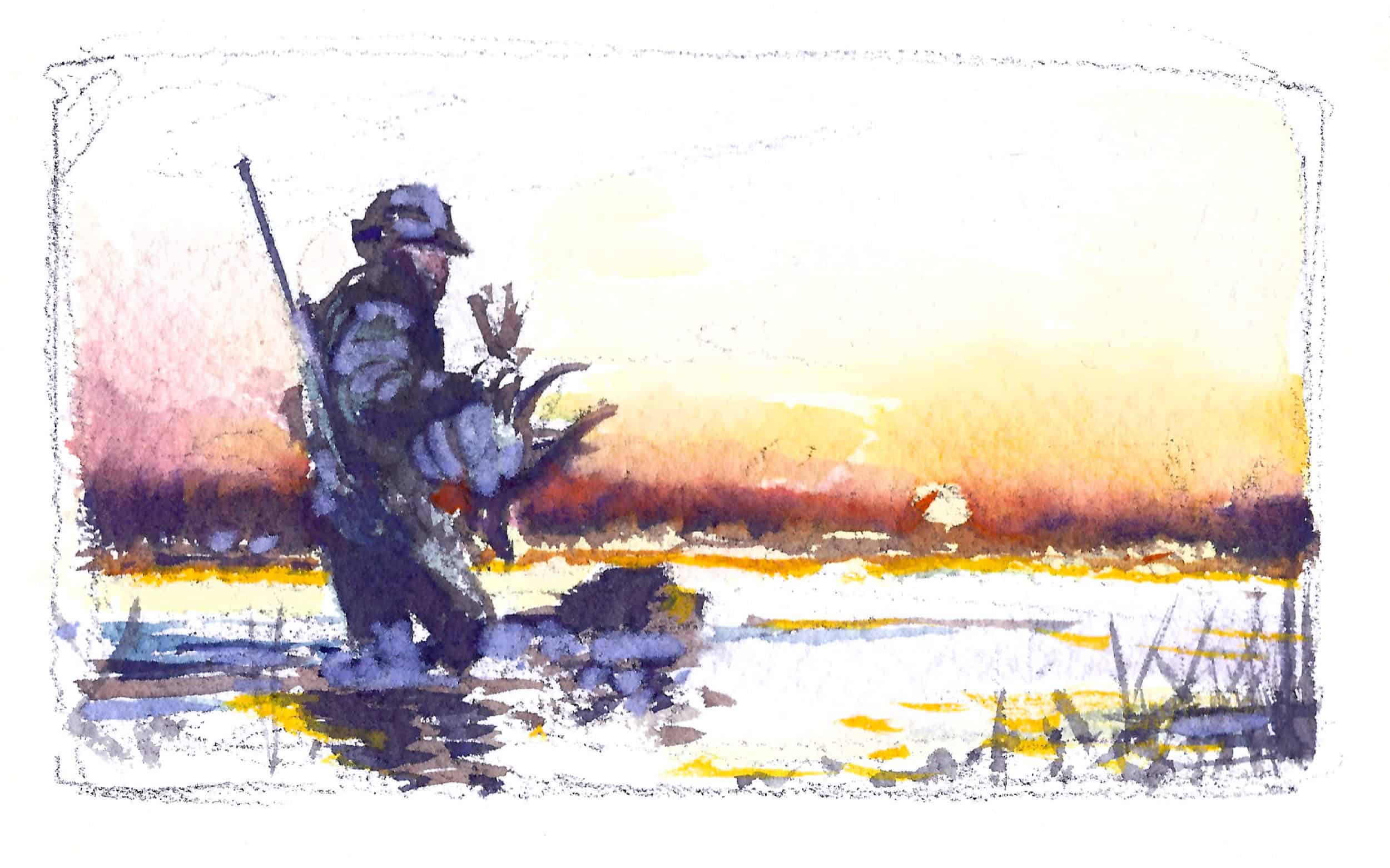
With their fortitude and passion, our bird dogs honor us. They do so with their fearless demeanor and sense of purpose, with their undying friendship and loyalty, and by minding our directions (even our errant ones) in the field.
We honor them first and foremost by trusting that their instincts are superior to ours, that they can lead us to wonders we would never find on our own. Bluntly put, we let them, if we have any sense, be the Alpha for a while.
As the seasons passed, Addison began to do just that. And “in a roundabout way,” he says, Gunner even led him to his future bride.
While there were no huntable ducks on the campus of Ole Miss, Addison trolled the quad with a leashed Lab puppy in tow. With his friendly demeanor and handsome British jawline, he — Gunner, that is — quickly became a fan favorite with the co-eds. Gunner, it so happened, was particularly fond of an advertising client of Addison’s at the time, a young woman named Ivy Jackson, who after a few conversations told Addison that she wanted to fix him up with a friend of hers named Emily. “And you’re going to marry her.”
Ivy was right — just as Gunner was right to gravitate toward her — as Addison soon fell hard and fast for Emily, like a flaring teal to a load of fast-swung number 4s.
Emily and Addison would be married within a few short years.
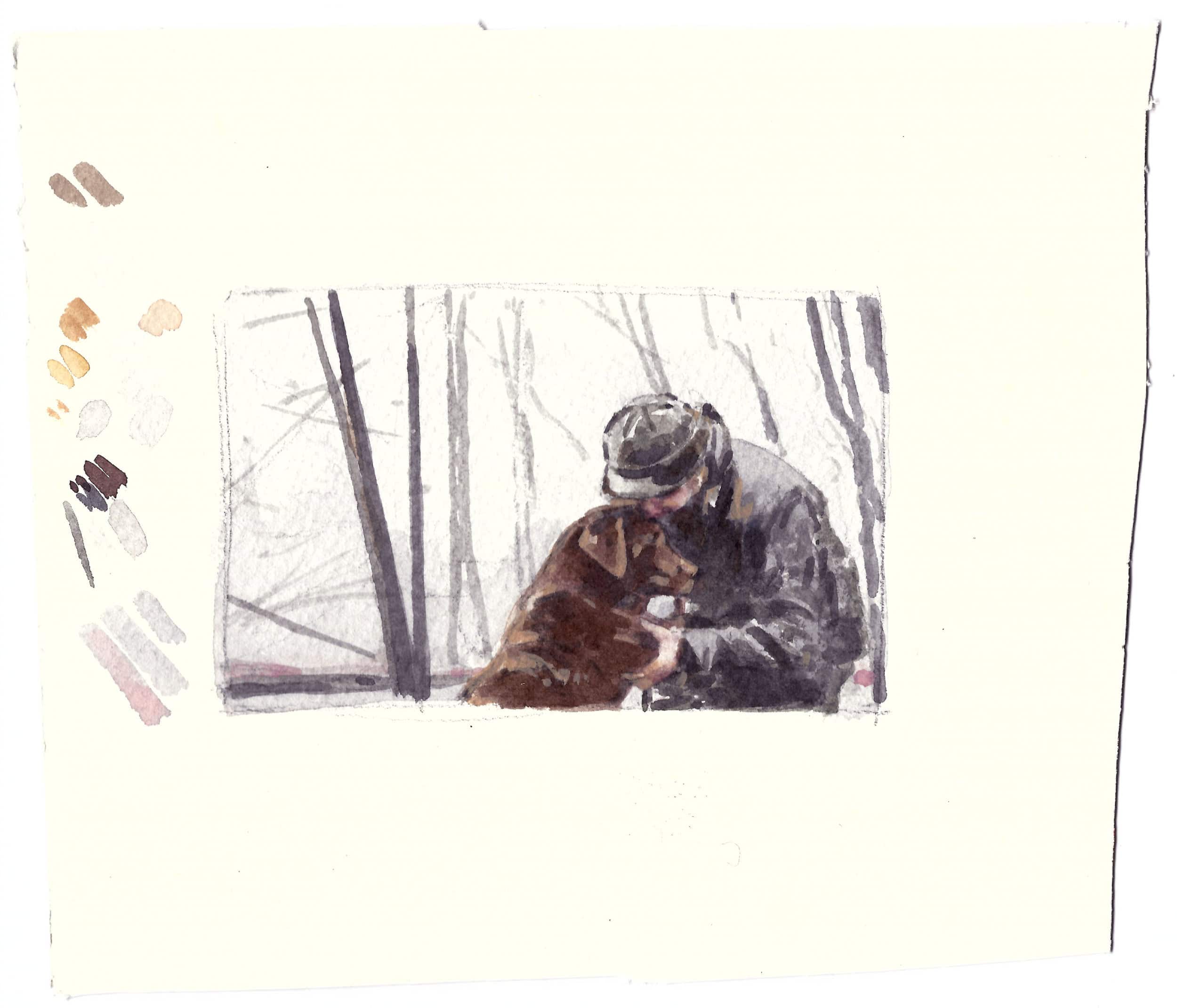
They do seem immortal, our bird dogs: when they lope the Hun laden steppe for miles, 24 on the day if the GPS collar is accurate; when they retrieve a crippled pheasant from a badger hole; when they swim across a hundred yards of frigid river to snatch a winged mallard from a back-eddy, then swim back across, snorting water out of their nostrils, and bring the bird to hand. And we tell our tailgate glory stories not for their benefit — they work for the work’s sake only — but to cauterize their legendary efforts in our memory, because we know that ultimately, brutally and beautifully so, we will outlive them.
Maybe we keep a hunting journal, a scrapbook of sorts, with limit-pics and feathers taped to the pages, porcupine quills plucked out of an overly curious nose. We jot down the coveys pointed and birds shot. We keep duck bands and tie mayfly tails with wood duck flanks. We cook our dogs elk steak for Christmas dinners and birthdays, doing our best to honor their majesty. Too strong a word? Hardly. What other creature allows us to collaborate so fully with its wildest self?
That’s how most of us honor our bird dogs’ legacy: mementos.
Addison, however, paid homage to Gunner on another stratosphere altogether. Inspired by Gunner’s life, he founded a company that manufactures a nearly bomb-proof plastic dog crate, a kennel so stout it has helped a growing number of dogs survive car wrecks.
“When I was just starting out with Gunner,” he says, “I used to have this cheap plastic crate that would wobble around, and I knew if we were going to get in a wreck, that crate would shatter.
“Gunner never had a no-go. I never saw him look at me and give up, no matter how cold it was or how tired he was —” Addison’s voice starts to crack a bit. “We try to take that same approach here. That toughness.”
When we first pick them up, scooping them from the mound of squirrelly littermates, they fill a void in us we didn’t know we carried. When they’re gone — cancer, let’s say, like Gunner’s — we come face-to-face with another void. And not just the hunters in the family. A dog like Gunner, after all — one whom the Edmonds’ youngest son Billy still asks about: “Nu-nuh, Nu-nah?” — is a unifying presence in a home, a safe place, a shared querencia we can scratch behind the ears.
After Gunner got sick, Addison could have been no-go. He could have spiraled into a despond, weathered, lethargic at best — he nearly did. Although the inseparable pair had enjoyed a few robust, well-documented, late-career hunts, Gunner’s decline weighed so heavy on his owner that friends worried for his well-being. Addison could have lost it. Instead, he channeled Gunner’s spirit and drive, instilling refreshed motivation into a company that helps preserve the kind of relationship he cherished with Gunner. And so it was with Gunner’s indefatigability in mind that Addison doubled down at the office, channeling his beloved dog’s energy into the company’s mission: build products that give our dogs the lives they deserve.
“Knowing how much Gunner changed my life (put) me on this mission to make the best dog products in the world, so that people can enjoy their dogs and have … a different appreciation for them.”
And today, when — God forbid, but it happens — a crash occurs on the highway, a bad one with bent guard rails and rolled sprinter vans, or a pickup T-boned by a cop-fleeing sedan, and the dog inside the American-made crate survives, its owners have Addison to thank.
Scratch that: it is Gunner they have to thank. In fact, it’s a little like the best duck dog ever born is watching over his distant relations.
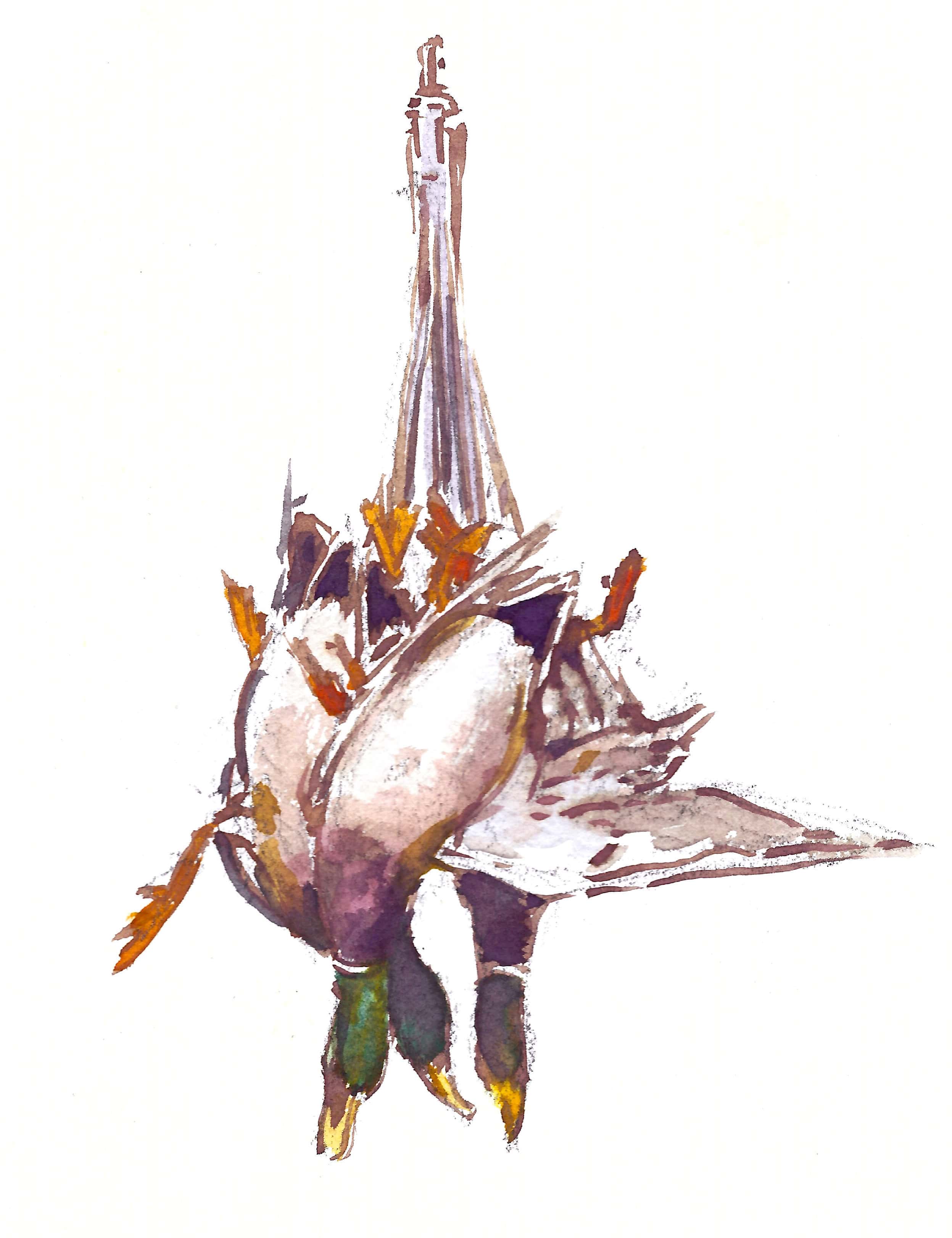
Originally published in Modern Huntsman Volume 7
